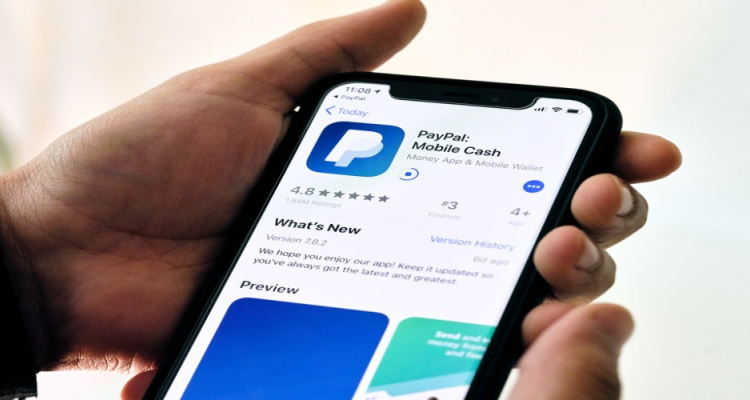
Best For You
Maximizing Your Money: Smart Strategies for Personal Finance Management with Mobile Apps
In today's fast-paced digital world, managing personal finances can often seem like a daunting task. With expenses, savings, investments, bills, and budgeting to consider, keeping track of your money can become overwhelming. Fortunately, the evolution of technology has brought forth a solution that fits right in your pocket: mobile apps designed for personal finance management.
These apps have transformed the way individuals monitor their financial health, offering powerful tools to track spending, save money, and invest wisely. In this article, we will delve into how you can effectively utilize mobile apps to take control of your finances and set yourself on the path to financial stability.
Understanding Your Financial Landscape: Comprehensive Expense Tracking
The first step to effective finance management is understanding where your money is going. Mobile apps can offer a detailed view of your expenses by categorizing them into different segments such as food, entertainment, utilities, and more. By inputting or syncing your purchases, whether through manual entry or by connecting to your bank accounts and credit cards, these apps provide real-time visibility into your spending habits.
With the data collected, the app can generate insightful reports and graphs that help you identify patterns in your spending. You may discover that you're spending more on dining out than you realized or that your subscription services are adding up to a significant amount. By having a clear picture of your expenses, you're better equipped to make informed decisions about where you can cut back.
Moreover, some apps offer the feature to set up alerts for when you're approaching the budget limit in a particular category. This proactive approach ensures you stay within your financial boundaries and avoid overspending. Expense tracking apps also often include tools for planning future expenditures, which can be especially useful for irregular expenses such as annual insurance premiums or holiday gifts.
Budgeting Made Simple: Tailored Plans and Real-Time Adjustments

Once you have a grasp of your spending, the next step is to create a budget that aligns with your financial goals. Budgeting apps simplify this process by allowing you to allocate funds to different categories based on your monthly income and financial objectives. These apps can give you a framework for a zero-based budget, where every dollar is assigned a purpose, or they can suggest a percentage-based budget, such as the 50/30/20 rule, which divides your income into needs, wants, and savings.
Real-time adjustments are a critical feature of budgeting apps. As you go through the month, your financial situation may change due to unexpected expenses or changes in income. Mobile apps enable you to adjust your budget on the fly, ensuring that it remains relevant and effective. You can also track your progress toward your budget goals throughout the month, helping you stay motivated and accountable.
These apps often include tools for forecasting future months, too. By using historical data and your inputted financial goals, they can help you anticipate upcoming expenses and adjust your spending accordingly. This forward-thinking approach can be especially helpful for those with irregular income or for planning for large, infrequent expenses.
Saving Smarter: Automated Tools to Boost Your Nest Egg
A fundamental aspect of personal finance is saving money. Mobile apps can play a pivotal role in helping you build your savings without it feeling like a chore. Many apps offer features such as automated savings, where a predetermined amount of money is transferred from your checking account to your savings account on a regular schedule. This "set it and forget it" method ensures that you're consistently saving without having to think about it.
In addition to automated savings, mobile apps can analyze your spending and income to identify additional savings opportunities. Some apps have algorithms that detect when you have extra cash that could be moved to savings, while others round up your purchases to the nearest dollar and transfer the difference into savings.
Investment is another avenue for growing your savings, and numerous personal finance apps offer investment platforms tailored to your risk tolerance and goals. Whether you're a seasoned investor or a beginner, these apps can guide you through the process of choosing stocks, bonds, mutual funds, or other investment vehicles. They can also provide educational resources to enhance your understanding of the investment world and help you make more informed decisions.
Debt Management: Tackling Liabilities with Strategic Planning

Debt can be one of the most significant barriers to achieving financial freedom. Mobile apps specifically designed for debt management can offer a structured plan to pay off debts more efficiently. By entering all your debts, including credit cards, student loans, and mortgages, the app can recommend the best repayment strategy, such as the debt snowball method (paying off small debts first) or the debt avalanche method (paying off high-interest debts first).
These apps also allow you to track your progress and see the impact of additional payments on your overall debt timeline. Visualizing how much interest you can save by paying off your debt early can be a powerful motivator. Additionally, some apps can negotiate lower interest rates on your behalf or remind you when payments are due, helping you avoid late fees and interest rate hikes.
Monitoring Credit Health: Stay Informed and Secure
Your credit score is a critical component of your financial health, influencing your ability to obtain loans and credit cards and even affecting your insurance rates or rental applications. Credit monitoring apps provide you with regular updates on your credit score and report, alerting you to any changes that could indicate fraud or identity theft.
These apps often offer tips for improving your credit score, such as reducing your credit utilization or correcting errors on your credit report. They also provide insights into how different financial actions, like paying off a debt or opening a new credit account, might affect your score.
In conclusion, mobile apps offer a comprehensive suite of tools for better personal finance management. From tracking expenses and budgeting to saving and investing, managing debt, and monitoring credit health, these apps empower users to take control of their financial destiny. By leveraging the convenience and capabilities of mobile apps, you can navigate the complexities of personal finances with confidence and ease, paving the way for a more secure and prosperous future.





